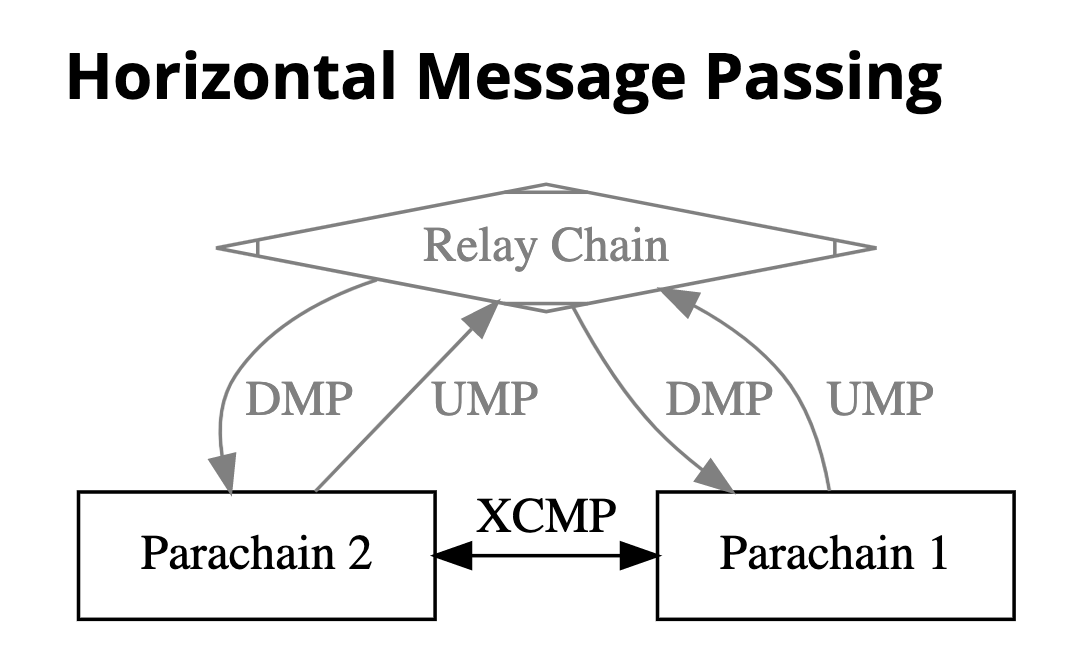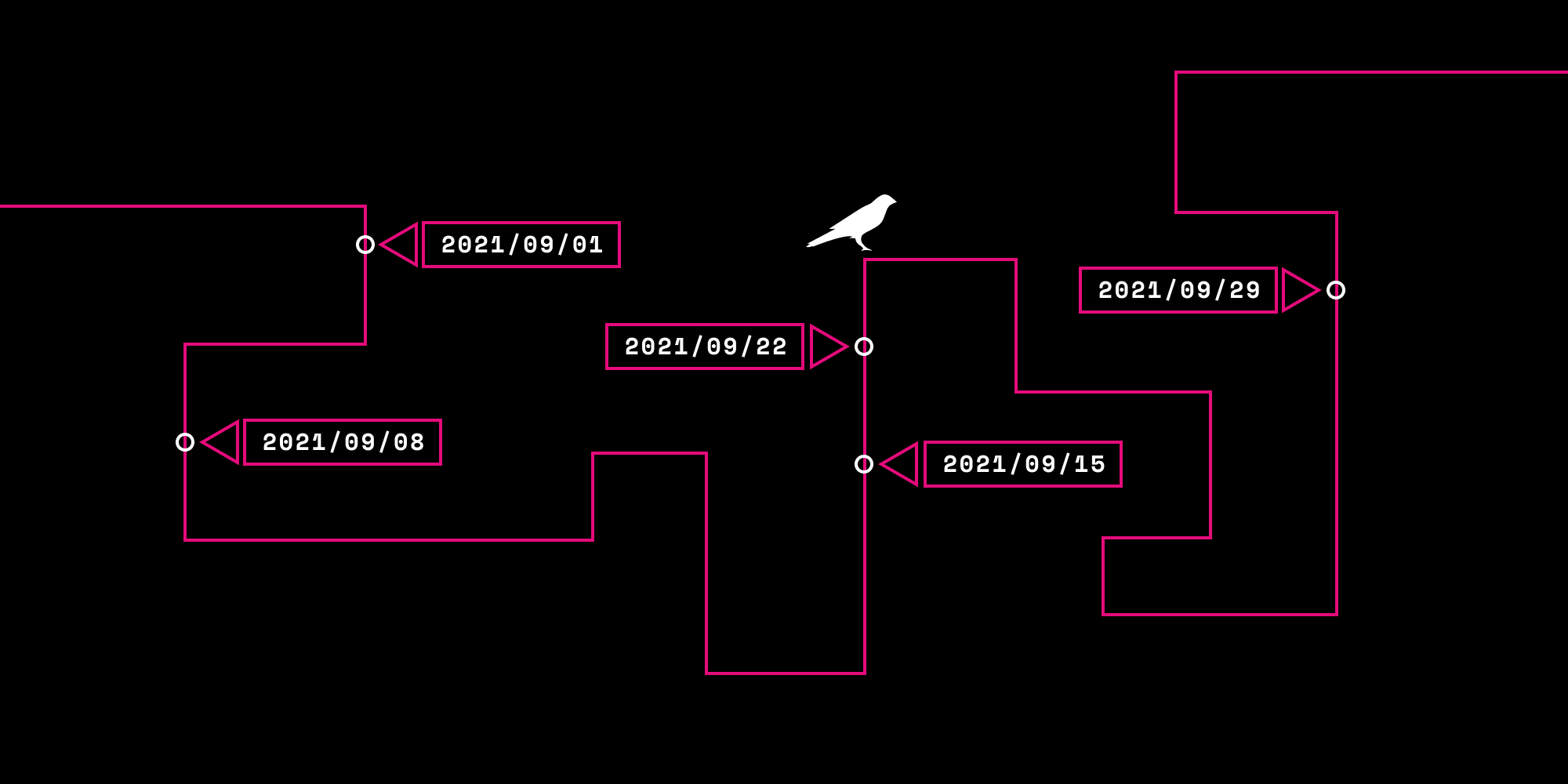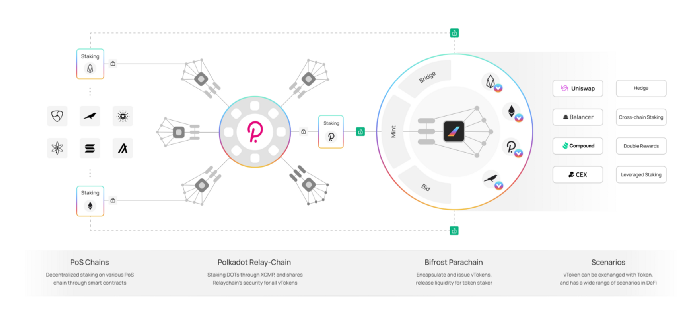SALP: Derivatives Open A New Era of Parachain Slot Aution
Parahain Slot Aution
Polkadot/Kusama is a multi-chain architecture with a sharding mechanism, where the relay chain gives shared security to parachains while the number of parachains a relay can access is limited. In order to allocate the limited parachain slots to more valuable parachains, Polkadot/Kusama uses an auction to allow each parachain project to compete for slot leases. The competition is done by staking DOT/KSM to the relay chain, the more stakes the more slots will be available. This process is known as Slot Aution.
Parachains can raise DOT/KSM from their respective communities by way of Crowdloan when bidding for slots, and DOT/KSM holders can choose to vote their DOT/KSM for any bidding project they like. This process, however, inevitably results in the loss of liquidity of the DOT/KSM held by the Crowdloan participants.
What is SALP?
SALP, known as the Slot Auction Liquidity Protocol, is a protocol introduced by Bifrost Finance to release liquidity from locked DOT/KSM positions in parachain auctions by issuing derivative assets anchored to locked assets.
For crowdloan participants, SALP offers the opportunity to participate in Crowdloan without lockup, and to receive the reward of bidding on backed projects without losing staked DOT/KSM liquidity. For parachains bidding for slots, SALP attracts more backers who do not wish to lose opportunity costs, increasing the probability of a successful bid.
The operating principle and mechanism of SALP
UMP Transact
With the passage of Kusama #129, Bifrost SALP’s decentralised implementation of slot aution contributions via XCM ump transact will be a case study in the interoperability of Crowdloan contributions from parachains calling relay chains across chains. So, how does SALP make a Crowdloan contribution via XCM? Let’s start by understanding the actual communication XCM messages between Polkadot’s constituent chains: UMP, DMP and XCMP.

UMP (up messaging) allows parachains to send messages to their relay chains. DMP (down messaging) allows relay chains to pass messages down to their parachains. XCMP is probably the best known of these and this allows messages to be sent between parachains. XCM (cross-chain messaging) can be used to convey the meaning of a message over any of these three communication channels. Bifrost does exactly that Bifrost sends cross-chain messages via XCM UMP Transact and then Crowdloan Contribute on the relay chain to achieve decentralised slot aution.
Message Confirmation
As the current XCM Response is not yet complete, Bifrost is unable to know whether a cross-chain message has succeeded on the relay chain after the release of vsKSM and vsBond with the current version of the XCMP protocol. To complete the confirmation of cross-chain messages, Bifrost deploys a message confirmation service that monitors the success of Contribute transactions on the relay chain and submits the confirmation results to Bifrost using a multi-signature mechanism.
Query Responses
The XCM v2 release provides a Query Responses mechanism, which allows Query IDs to query the execution results of cross-chain transactions. The implementation is still being explored.
vsToken & vsBond
By participating in the crowdloan through SALP, users will receive two derivatives, vsDOT/vsKSM (Voucher Slot Token) and vsBond (Voucher Slot Bond). vsDOT/vsKSM are Fungible Tokens that anchor the staked DOT/KSM, vsBond varies depending on the backed auction, with users receiving vsBond — Parachian A if they vote for Parachain A and vsBond — Parachain B if they vote for Parachain B.
In fact, vsBond also has a parameter which is the specific lease date of the slot, so the full vsBond representation would be vsBond-Parachain X-slot expiry date, e.g. vsBond-Bifrost-2022/05/13
Why decouple into two derivatives, please refer to the article: Introduction to SALP
Both vsDOT/vsKSM and vsBond can be traded at any time in the liquidity pool opened by Bifrost, or in liquidity pools opened by other third parties, or the staked DOT/KSM can be redeemed in a 1:1 consolidation at the end of the slot lease period.
vsKSM First Application
At 16:17 HKT on 20 July, the auction for the first Kusama parachain slots has come to an end, with Bifrost winning the fifth slot in the first batch of Kusama parachains with 142,430.9241 KSM. In this auction, 112,303.1704 KSM, or approximately 79%, were minted through SALP. It is clear that SALP played a significant role in the Bifrost auction.
2nd Kusama slot auctions

Bidding for the second slots in Kusama has opened on 1 September 2021 with many parachain candidators participating and Bifrost will be working with Basilisk, Altair, and Calamari to integrate SALP operations for them, freeing up liquidity for the KSMs participating in the crowdloan. This will be the first time SALP has helped projects outside of Bifrost bid for slots and is the start of SALP’s universalisation.
Basilisk (HydraDX)
Basilisk is the canary network for HydraDX, a liquidity protocol for cross-chain assets on Polkadot, incubated and developed by Zee Prime. The biggest innovation of HydraDX is to put all tokens in one liquidity pool, allowing for the injection of single or multiple assets and solving the problem of weak liquidity.
Altair (Centrifuge)
Altair is the canary network for Centrifuge, using almost the same codebase as Centrifuge Chain, Centrifuge is dedicated to the up-chaining and financialisation of real world assets and the latest experimental features of Centrifuge will be tested first on Altair.
Calamari (Manta Network)
Calamari Network is the community-based canary network to Manta Network, a plug-and-play privacy-preserving parachain on Kusama. zkSNARKs (proof-of-knowledge zero technology) is the basis for Calamari’s privacy assurance, and early products include MariPay, a privacy payment, and MariSwap, a decentralised AMM trading platform designed to provide privacy services across Kusama’s DeFi network.
Derivatives Farming
Basilisk, Altair, and Calamari have all launched their own crowdloan participation incentives, and for crowdloan participants, participation through the SALP channel will provide access to derivatives vsKSM and vsBond on top of the incentives received from the parachain project owners.
Bifrost will create a liquidity pool for vsKSM and vsBond, which can be sold at any time. At the same time, Bifrost, in conjunction with the project parties, is offering an alternative way to generate interest, which is vsKSM & vsBond co-mining.
Holders of vsKSM and vsBond can choose to stake both in the pool, and users can keep Farming additional revenue based on the length of the stake and the percentage of the pool. More specific Farming rules will be announced when SALP officially supports Crowdloan.

Farming Page Example
SALP releases liquidity through derivatives and provides sufficient liquidity pools and interest-generating channels for derivatives to minimise the opportunity cost for crowdloan participants. By attracting more crowdloan participants, SALP will surely become a powerful tool for parachain projects to bid for slots and help partner parachain projects to successfully take the slots!
What is Bifrost?
Bifrost is the Polkadot Ecological DeFi basic protocol. It is committed to becoming an infrastructure for pledged assets to provide liquidity. Bifrost launched derivatives vToken for Staking and Polkadot Parachain Slot (Crowdloan). It has obtained $2.15M in fund-raising from NGC, SNZ, DFG, CMS and other institutions and Web3 Foundation Grant. It is also a member of Substrate Builder’s Program and Web3.0 Bootcamp.

vToken can optimize transactions in multiple scenarios such as DeFi, DApp, DEX, CEX, and realize the transfer channel of pledge rights such as staking and crowdloan through vToken, realize the risk hedging of pledge assets, and expand scenarios such as vToken as collateral for lending, its staking reward part of the interest can be offset to achieve low-interest loans.
Learn more about Bifrost
Website | GitHub | Telegram | Medium | Twitter | Discord | SubSocial